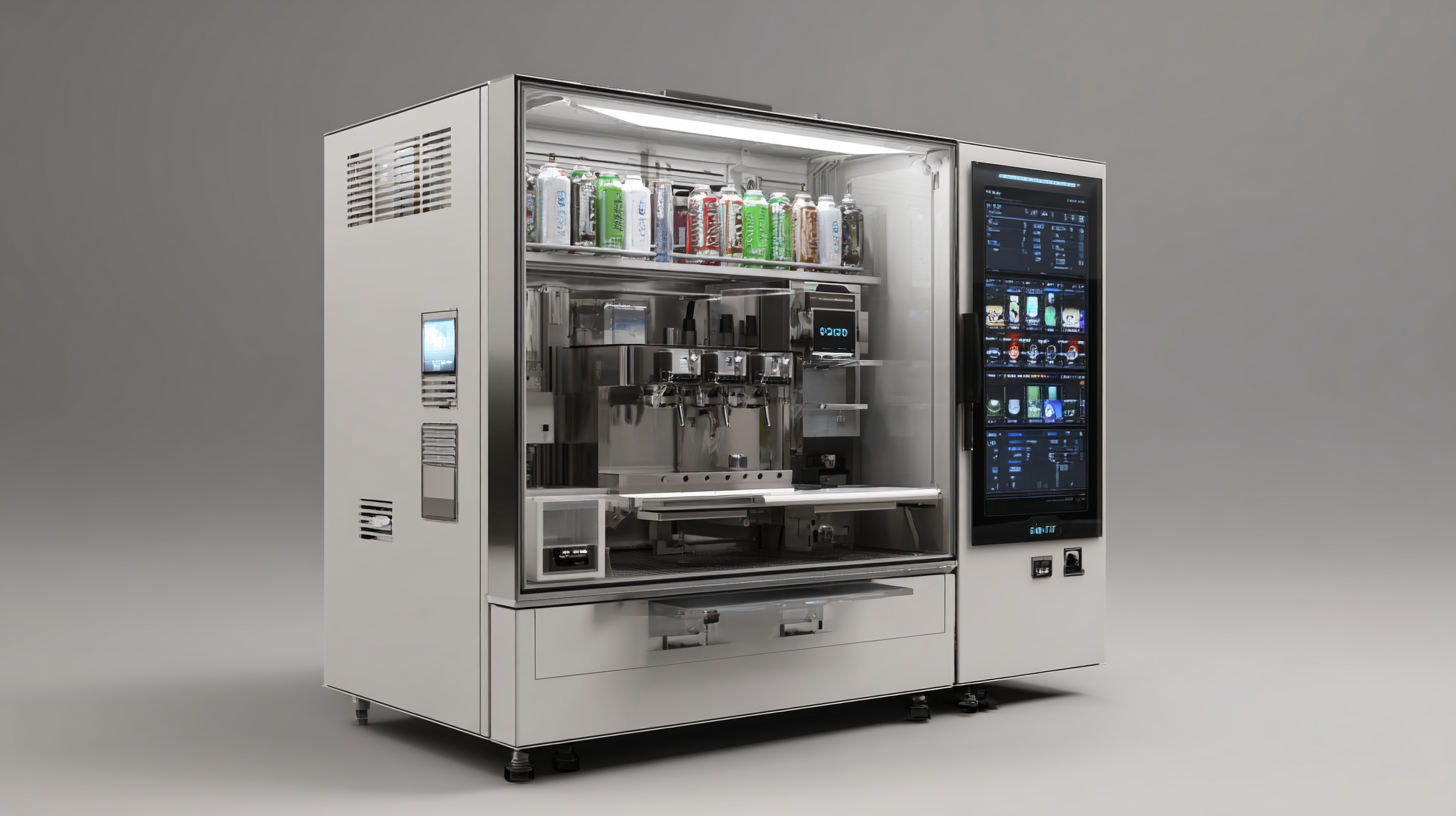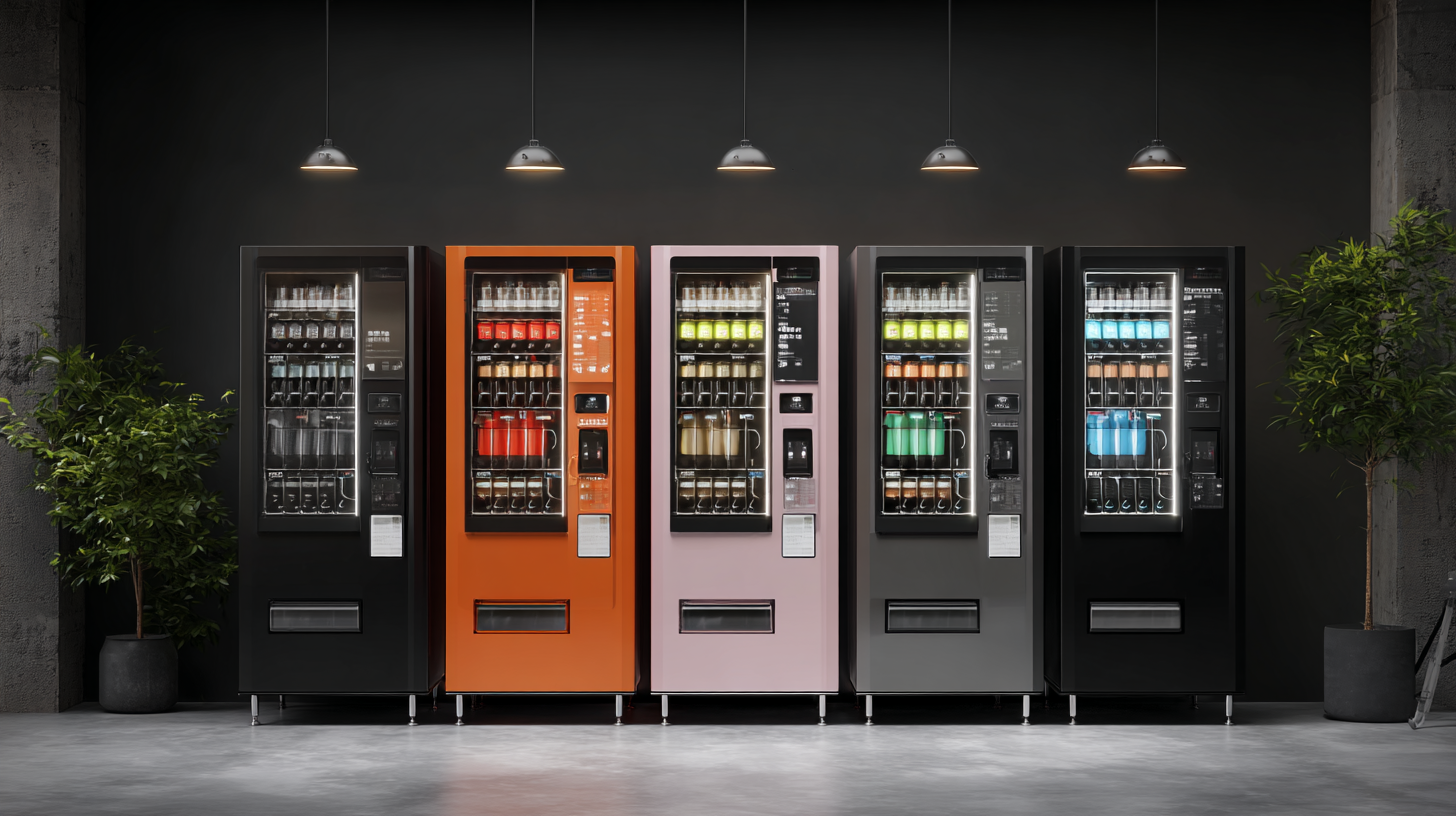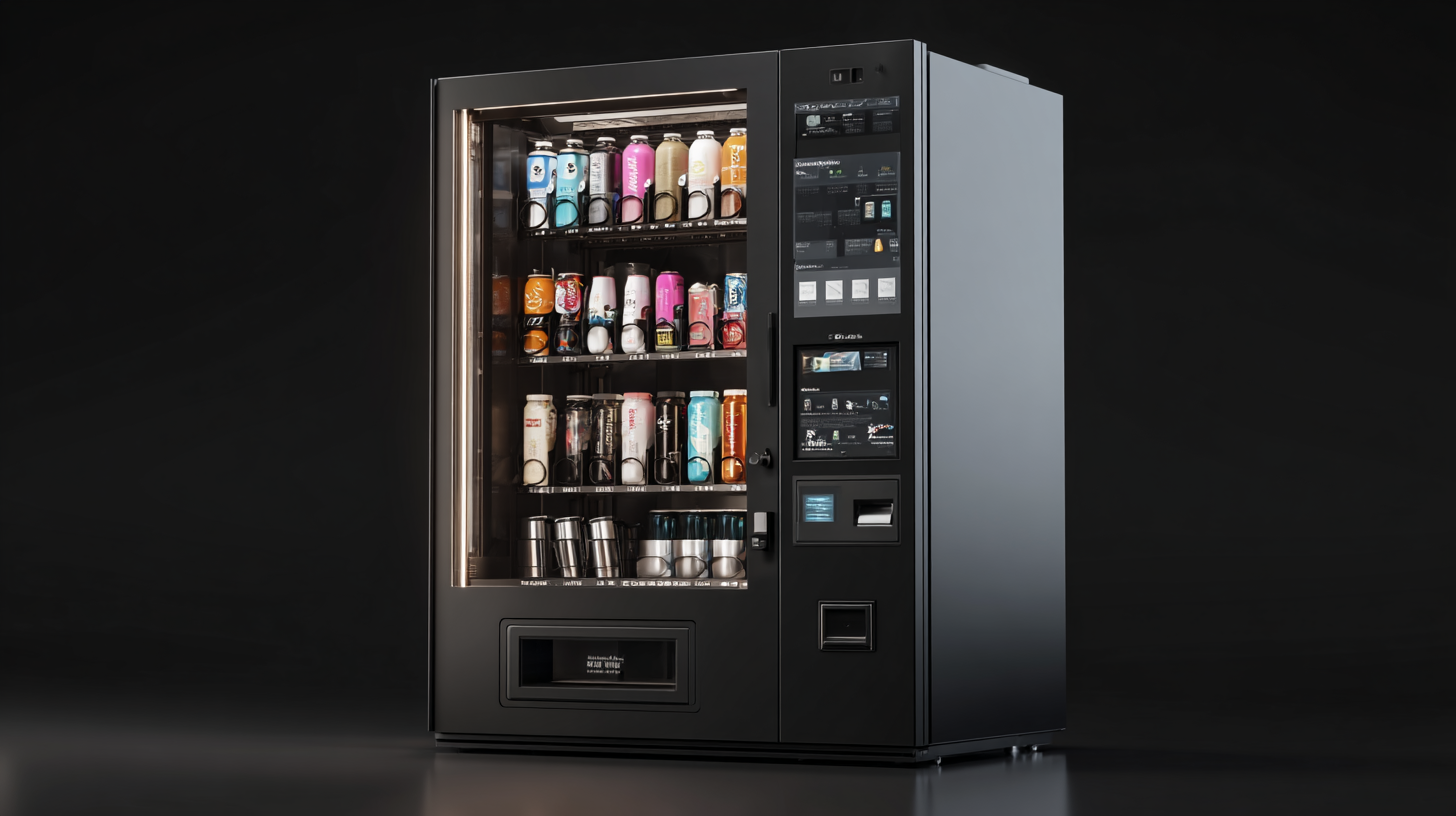Exploring the Future of Beverage Innovation in 2025 Comparing the Best Drink Machines for Global Buyers
As we step into 2025, the world of beverage innovation is evolving at an unprecedented pace, driven by advancements in technology and changing consumer preferences. The drink machine market is witnessing a remarkable transformation, presenting global buyers with a myriad of options that cater to varying tastes and lifestyles. From versatile multi-functional machines that can create a wide array of beverages to specialized devices designed for specific drinks, the choices seem endless. This blog aims to explore the future of beverage innovation and provide a comprehensive checklist for comparing the best drink machines available on the market.

By identifying key features, sustainability considerations, and user experiences, we will guide buyers through the process of selecting the ideal drink machine that aligns with their needs, ultimately enhancing both convenience and enjoyment in beverage preparation.
The Rise of Smart Beverage Machines: Market Trends and Predictions for 2025
The rise of smart beverage machines is significantly transforming the global beverage industry as we approach 2025. Anticipated to reach a market value of $11.47 billion by 2025, the smart beverage machine segment is a critical player in the broader $9.86 billion vending machine market. Innovations in technology and the increasing demand for convenience are driving this growth, with consumers seeking personalized and efficient drink options.
This shift is not just limited to beverage machines but reflects a broader trend in automation and smart technology across various sectors. For instance, the robotics market is projected to experience substantial growth, indicating a shift towards automation that enhances both consumer experiences and operational efficiency. Similarly, the packaging and medical drone markets are witnessing impressive growth rates, underlining the demand for advanced solutions that cater to diverse needs. As we explore the future of beverage innovation, it's clear that smart machines will play a pivotal role in shaping consumer preferences and industry standards.
Exploring the Future of Beverage Innovation in 2025 Comparing the Best Drink Machines for Global Buyers - The Rise of Smart Beverage Machines: Market Trends and Predictions for 2025
| Machine Type | Features | Estimated Price ($) | Market Growth Rate (%) | Predicted Global Sales (Units) |
|---|---|---|---|---|
| Smart Coffee Machine | App Control, Custom Brew Settings | 300 | 20 | 500,000 |
| Smart Water Dispenser | Temperature Control, Filter Status | 150 | 15 | 300,000 |
| Smart Soda Maker | Flavor Variety, Carbonation Control | 200 | 25 | 400,000 |
| Smart Juicer | Nutrient Extraction, Recipe Suggestions | 250 | 18 | 350,000 |
| Smart Blending Machine | Voice Control, Recipe Storage | 280 | 22 | 450,000 |
Key Features to Look for in High-Tech Drink Machines for Home and Commercial Use
The beverage industry is on the brink of major transformation, with cutting-edge drink machines leading the way. As we approach 2025, consumers and businesses alike are seeking high-tech solutions that enhance efficiency and flavor profile. According to a report by Allied Market Research, the global market for beverage dispensers is expected to reach $6.9 billion by 2025, indicating a growing demand for advanced, user-friendly drink machines. When selecting a machine, key features such as automation, customization options, and smart technology integration are essential.
In the commercial sector, drink machines equipped with IoT capabilities allow for real-time data monitoring,
ensuring optimal performance and maintenance alerts. A recent survey indicated that 65% of coffee shop owners prioritize
machine efficiency to maximize throughput during peak hours.
For home users, machines with intuitive interfaces and customizable drink options are gaining popularity,
catering to the growing trend of personalized beverages.
The National Coffee Association noted that 79% of Americans brew coffee at home, highlighting
the importance of investing in high-quality appliances
that meet individual preferences.
As we explore the future of beverage innovation, investors and consumers should look for machines that offer not only superior performance but also sustainability features, such as waste reduction and energy efficiency. The burgeoning trend towards eco-conscious consumption presents an opportunity for manufacturers to develop products that resonate with environmentally aware buyers.
Sustainability in Beverage Innovation: Eco-Friendly Solutions for Modern Machines
As we delve into 2025, the beverage industry is undergoing a significant transformation driven by sustainability. Eco-friendly solutions are no longer optional but essential for modern drink machines. The rise of energy-efficient systems demonstrates a commitment to reducing carbon footprints. Beverage manufacturers are now focusing on utilizing renewable resources, like biodegradable materials for packaging and recyclable components in machine design. This shift not only satisfies the growing consumer demand for green products but also aligns with global initiatives aimed at promoting environmental responsibility.
Moreover, innovative drink machines are incorporating cutting-edge technology that minimizes waste and maximizes resource efficiency. From smart dispensers that track usage to machines powered by solar energy, the future promises a plethora of advancements that cater to eco-conscious buyers. Personalization is also a key trend, where machines allow consumers to create beverages tailored to their preferences while emphasizing minimal environmental impact. As this wave of sustainable innovation advances, the beverage landscape will not only meet the demands of consumers but also contribute positively to our planet.
Consumer Preferences Shaping Beverage Machine Technology in the Next Few Years
As we look toward 2025, the beverage machine technology landscape is set to evolve dramatically, shaped by changing consumer preferences. With the global coffee machine market projected to reach $7.36 billion in 2024 and grow significantly through 2031, home brewing is becoming increasingly popular. This trend reflects a deeper appreciation for personalized coffee experiences, where consumers are not just looking for convenience but are also invested in the quality and flavor of their brews.
Tips for manufacturers: Pay close attention to the latest innovations in brewing technology that can enhance the flavor profile or convenience of coffee at home. Consider developing machines that integrate digital solutions, allowing users to customize their drinks through an app. Such functionalities can capture consumer interest and build brand loyalty.
Another emerging market is the commercial ice machine sector, anticipating a growth to $3.2 billion between 2024 and 2032. This growth indicates a rising demand for refreshing beverages in restaurants and cafes, highlighting the necessity of efficient ice production. For businesses, investing in versatile machines that can cater to a variety of beverage styles—like cocktails, smoothies, and soft drinks—will be critical in standing out.
Tips for buyers: When selecting a beverage machine, prioritize versatility and ease of use. Machines that can handle multiple types of beverages will not only cater to a broader audience but also streamline operations and reduce costs. Keep an eye on sustainability features, as environmentally conscious consumers are increasingly favoring brands that minimize waste and utilize eco-friendly technologies.

Comparative Analysis of Top Beverage Machines: Who Stands Out in 2025?
As we look ahead to 2025, the beverage landscape is poised for transformative innovation, driven by technological advancements and evolving consumer preferences. A comparative analysis of the top beverage machines reveals significant variations in features, efficiency, and user experience. Notably, the instant coffee segment is projected to see robust growth, driven by an increasing demand for convenience and quality. Industry reports indicate that major players will leverage new brewing technologies to enhance flavor profiling and customization, catering to a diverse market.
When selecting a beverage machine, consider investing in models equipped with smart technology for enhanced connectivity and control. This can streamline your beverage preparation process and allow for personalized settings. Additionally, focusing on machines that support multiple beverage types can enhance versatility in your choices and maximize space if you're operating in a compact area.
Furthermore, with the cocktail syrup market thriving, makers that offer interchangeable flavor cartridges may capture consumer interest. This not only caters to the artisanal trend but also allows for experimentation and creativity in home mixology, appealing to a growing demographic seeking unique drinking experiences. As we explore the beverage innovation frontier, these insights can guide choices that align with emerging trends and preferences.

